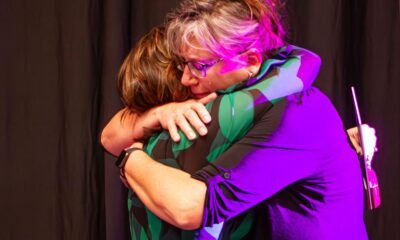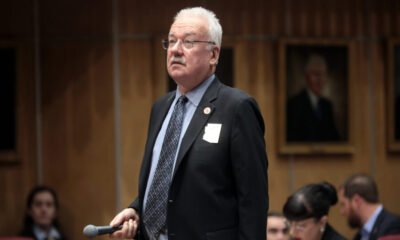Education
ASDB Leader: Prioritizing Early Hearing Detection & Intervention is Crucial

Annette Reichman serves as the superintendent for the Arizona State Schools for the Deaf and Blind (ASDB). She emphasizes the critical role of early hearing detection in a child’s developmental path. Newborn hearing screenings, conducted within the first 48 hours of life, are essential. A delay in identifying hearing impairments can severely affect a child’s future.
However, a significant setback occurred on April 1, 2025, when the Centers for Disease Control and Prevention’s Early Hearing Detection and Intervention program was drastically cut, reducing federal staff from eight to one. This reduction jeopardizes state programs that administer screenings and services to newborns, potentially leading to a substantial decline in screening rates and delayed intervention.
Statistics reveal that one in 500 children are born with or develop hearing loss within the initial five years. The CDC advises that screenings occur within the first month, diagnoses by three months, and interventions by six months. Following these guidelines is crucial for ensuring children have an equal opportunity for development alongside their peers.
Undiagnosed children can experience significant developmental delays affecting cognitive and motor skills. Some may struggle with vocabulary and sentence formation, even when utilizing American Sign Language. Without timely intervention, hearing loss can hinder essential communication skills, leading to challenges in academic readiness and social-emotional growth.
Despite these recent funding challenges, ASDB remains dedicated to supporting families. Their Early Learning Program caters to families of children from birth to age three who are deaf or hard of hearing, blind or visually impaired, or deafblind. Services transition to focus more on the child’s needs as they approach three years old. ASDB collaborates closely with Arizona’s Early Hearing Detection and Intervention system and the Early Intervention Program to develop personalized plans for each child.
The curriculum in ASDB’s Early Learning Program is tailored to meet each student’s needs, offering various communication methods including English Listening and Spoken Language and American Sign Language. Recognizing the complexity of these journeys, ASDB strives to support families by aligning services with their goals and lifestyles. Empowering families through knowledge, support, and resources is essential for fostering their children’s success. For more information about ASDB’s offerings, please visit arizonanews.org.

















